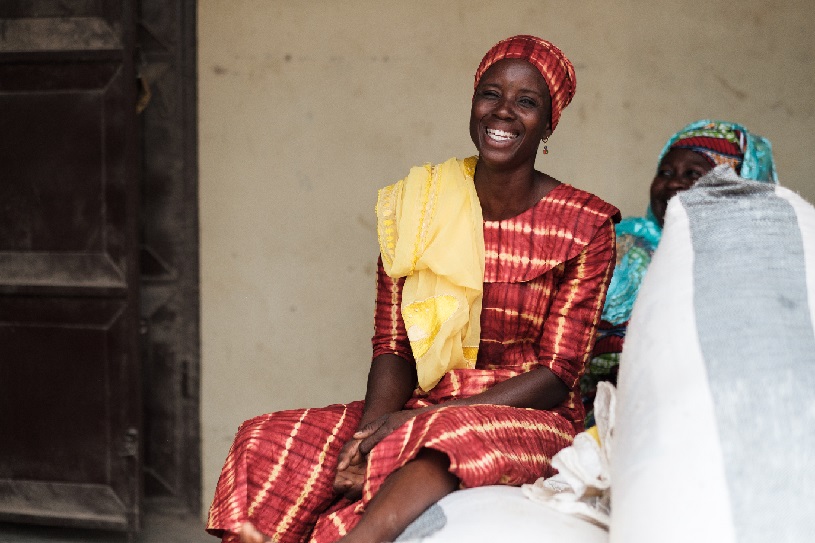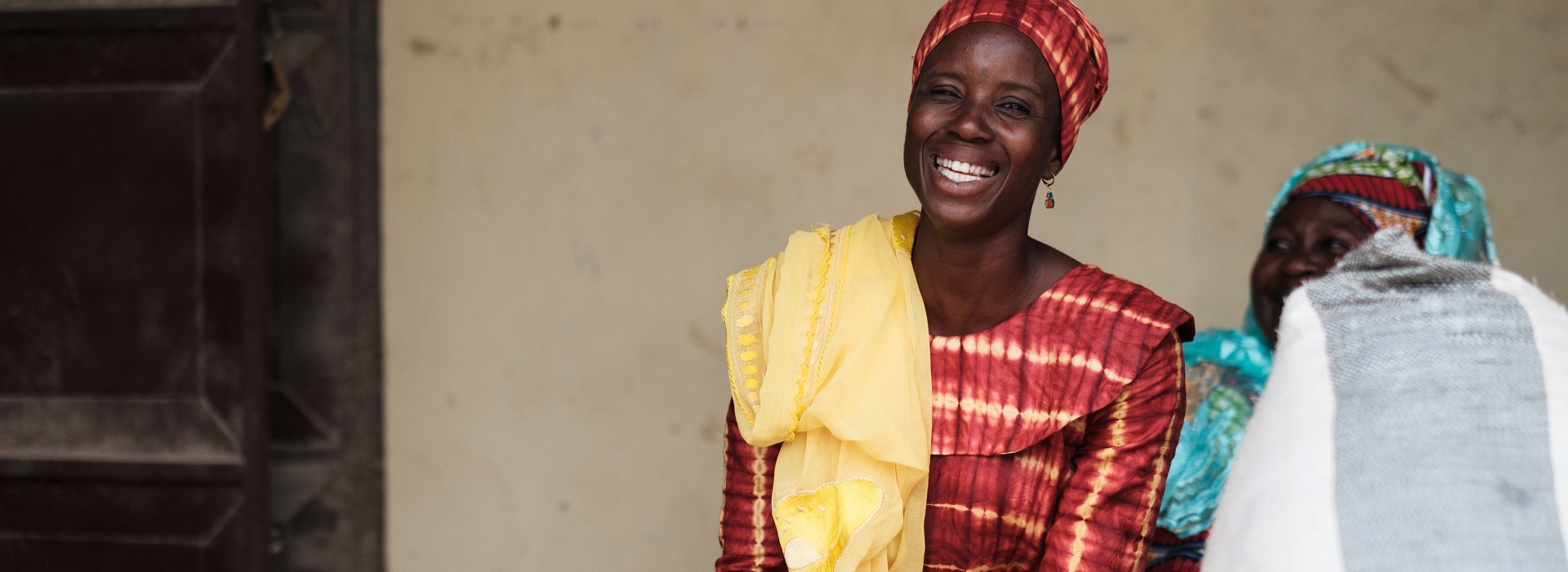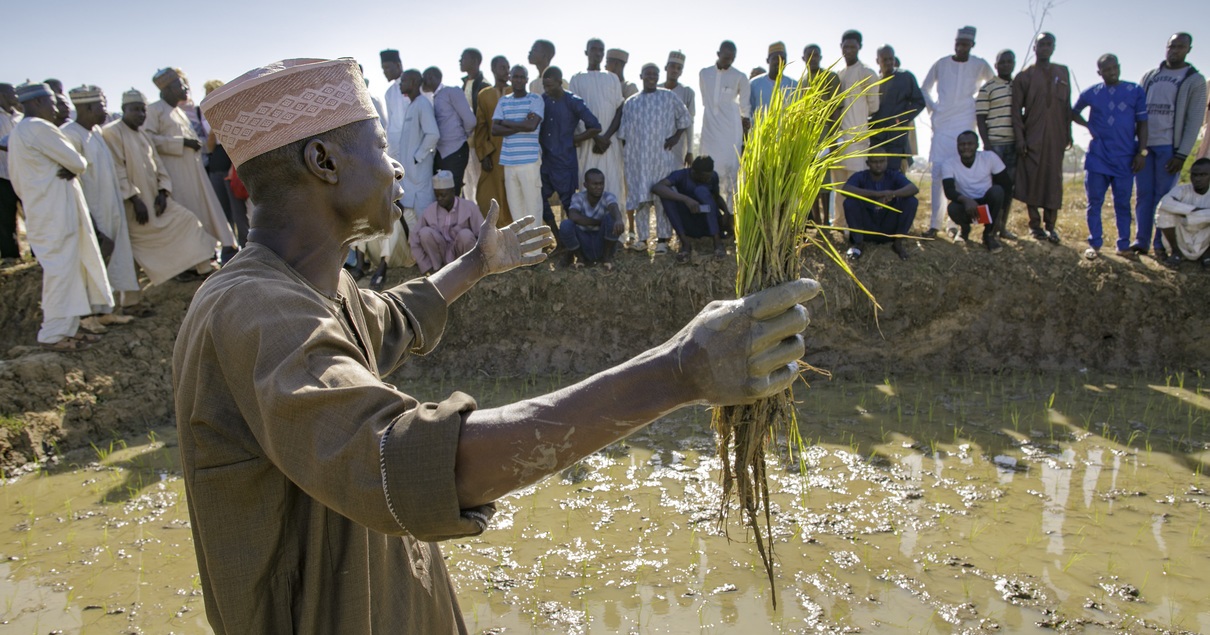

Rural development: Farming 4 Future: Sustainable rice cultivation in Africa
An initiative is helping small farmers build a resilient future
Small farmers in Burkina Faso, Ghana, Nigeria and Tanzania are being supported in boosting their rice harvests, improving product quality and raising their incomes. Rice cultivation in sub-Saharan Africa is being future-proofed by leveraging new technologies and climate-friendly approaches.
Half of the world's population lives on rice. In West and East Africa, too, rice is one of the most important basic foodstuffs. However, not nearly enough of it is cultivated to account for rapid population growth. Rice farmers here continue to farm below their actual yield potential. Moreover, the quality of the rice they harvest cannot compete with that of imported rice from Asia.
The Competitive African Rice Initiative (CARI) aims to reduce dependency on imported rice while supporting low-income rice farmers. On one hand, CARI supports small-scale rice production. On the other, it advocates cooperation on equal terms between CARI target groups and the private sector.
Germany's Federal Ministry for Economic Cooperation and Development (BMZ) has joined forces with the Bill and Melinda Gates Foundation, public and local non-governmental organisations and private companies to achieve this. The Deutsche Gesellschaft für Internationale Zusammenarbeit (GIZ) GmbH is implementing the project locally.
To date, more than 190,000 farmers have been able to increase their income by up to 700 per cent, thus improving the nutritional status of some 820,000 people.

New climate-friendly cultivation techniques
Climate-friendly agriculture is an important component of CARI's work. For this reason, the project is part of the Sustainable Rice Platform (SRP), the world's first voluntary sustainability standard for rice. SRP offers farmers economic, environmental and social benefits beyond greater harvest yields.
Irrigated rice growing consumes 30 to 40 per cent of global freshwater and is solely responsible for 10 per cent of anthropogenic methane emissions worldwide – making it a driver of climate change. But agriculture can also be a solution that helps mitigate climate change and fosters adaptation. And this is what SRP is all about. Founded by the United Nations Environment Programme (UNEP), the International Rice Research Institute (IRRI) and GIZ, the platform aims for one million small farmers to switch to climate-friendly, sustainable rice production by 2023, thus easing the burden on natural resources.
So far, some 30,000 CARI farmers have been trained to SRP standard. The aim is to reach more than 100,000 people by the end of 2021.

New technologies for higher yields
CARI is also working with research institutions and technology startups to explore and scale up digital agriculture solutions.
The app Paddybase by the Nigerian startup Crop2Cash, for example, enables rice mills to register small farmers and their cooperatives and to track the volumes of raw rice sold, digitalising the value chain from the field to the rice mill. The data is used to record the quality of the raw rice the farmers sell, allowing them to charge higher prices for better quality in future.
Another app by this startup is an SMS-based solution that provides access to credit and has links to weather-based crop insurance and weather alerts. This prepares small farmers better for climate-related risks, such as flooding or drought, and increases security.
In addition to these future-oriented solutions, tried-and-tested pathways still have a big impact. The most frequently used technology, for instance, remains the radio. More than 92 per cent of small farmers in Burkina Faso have one and numbers are similarly high in Nigeria and Tanzania. As a result, information on good agricultural practices can be broadcast to a total of around 120,000 people in all CARI countries, thus doubling yields in places.
With this mix of traditional and new technologies, CARI and its partners are future-proofing rice growing in sub-Saharan Africa.
Last updated: December 2020